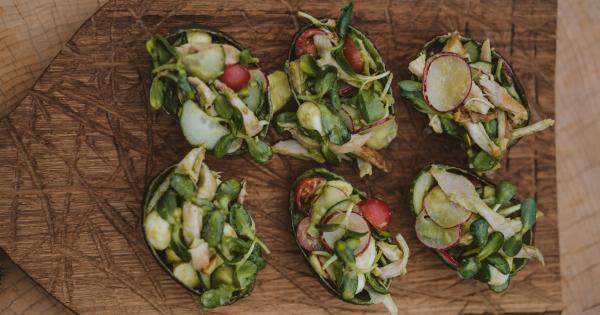Pets, just like humans, can benefit from a strong immune system. A healthy immune system helps protect your furry friends from various illnesses and infections.
While providing them with regular veterinary care is essential, a balanced diet is also crucial in supporting their immune system. Here are some superfoods that can help strengthen your pet’s immune system:.
1. Blueberries
Blueberries are not only delicious, but they also have numerous health benefits for your pets. Rich in antioxidants, vitamins, and fiber, blueberries can contribute to a stronger immune system.
Additionally, they are low in calories and can even aid in maintaining your pet’s weight, reducing the risk of obesity-related health issues.
2. Sweet Potatoes
Sweet potatoes are another fantastic addition to your pet’s diet. They are packed with essential nutrients, including vitamins A and C, which are crucial for maintaining a healthy immune system.
Sweet potatoes are also a great source of dietary fiber, promoting digestive health in your pet.
3. Salmon
Salmon, especially wild-caught, is a fantastic source of omega-3 fatty acids. These fatty acids have anti-inflammatory properties and can help strengthen your pet’s immune response. They also contribute to healthy skin and a shiny coat.
However, ensure the salmon is thoroughly cooked and doesn’t contain any harmful seasonings or additives.
4. Spinach
Leafy greens like spinach are rich in vitamins, minerals, and antioxidants, making them excellent immune system boosters for your pet. Spinach is particularly high in iron and vitamin C, which both play essential roles in supporting immune function.
5. Pumpkin
Pumpkin is not only a delightful ingredient for fall-themed treats but is also a nutritional powerhouse. It is rich in fiber, vitamins A and C, and antioxidants.
The antioxidants found in pumpkin can help protect your pet’s cells from damage caused by free radicals.
6. Yogurt
Yogurt can be a beneficial addition to your pet’s diet, especially if they can tolerate dairy. It contains probiotics that promote a healthy gut flora.
A strong gut flora is linked to a strengthened immune system, as it helps fight off harmful bacteria and aids in proper digestion.
7. Carrots
Carrots are not only great for your pet’s teeth but also for their immune system. They are low in calories and high in essential nutrients such as beta-carotene, vitamin K, and potassium.
Beta-carotene is converted into vitamin A in your pet’s body, which supports their immune health.
8. Lean Chicken
Lean chicken is an excellent source of protein for your pets. It provides vital amino acids that contribute to building a robust immune system.
Avoid feeding them chicken with the skin on or cooked with excessive seasoning, as it can be harmful to their health.
9. Coconut Oil
Coconut oil has become increasingly popular for its numerous health benefits, including its immune-boosting properties. The medium-chain fatty acids present in coconut oil have antiviral, antifungal, and antibacterial effects.
Start by introducing small amounts of coconut oil into your pet’s diet and gradually increase it.
10. Broccoli
Broccoli is a cruciferous vegetable that is rich in antioxidants and nutrients. It contains vitamins A, C, and E, as well as fiber, which all contribute to a healthy immune system.
However, remember to feed it in moderation, as too much broccoli can lead to gastrointestinal upset in some pets.
It’s important to note that any dietary changes or additions should be implemented gradually and in consultation with your veterinarian.
Each pet has unique nutritional needs, and it’s important to consider any underlying health conditions or allergies they may have.




























